Alessandro Mendini revisits Proust chair for marble exhibition
Milan 2014: Alessandro Mendini recreated his iconic Proust chair in marble for an exhibition of products shown by Italian company Robot City at Ventura Lambrate in Milan.
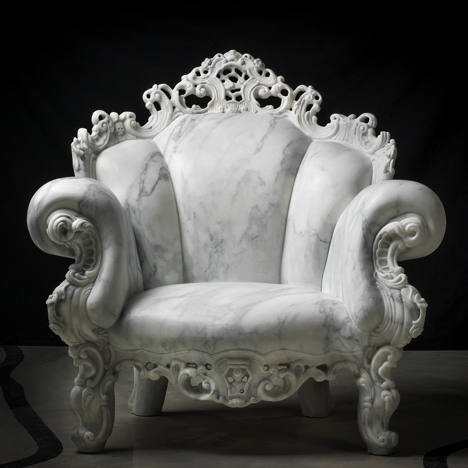
Made for the Italian marble company's Solid Spaces show, the new iteration of the Proust chair is an attempt to create an object with a "hyper-realist" appearance by using marble to create an "almost surreal" effect, said Robot City.
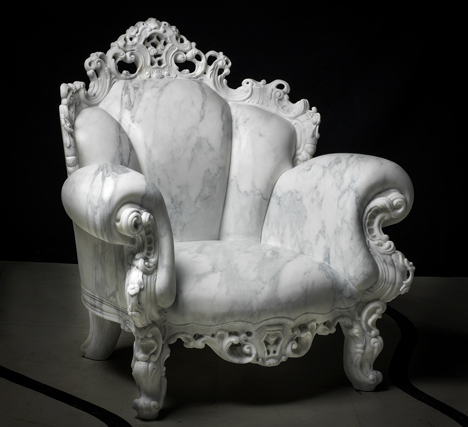
Originally created in 1978, the Poltrona di Proust chair became Mendini's best-known work. It was the first in a series known as Redesigns, which brought together his academic theories on the importance of historical context for design and the significance of surface appearances in a fast-moving world.
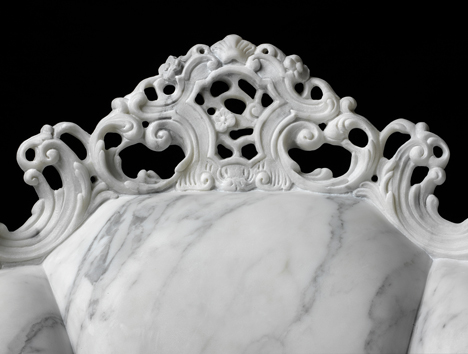
The Proust chair was developed after Mendini stumbled across a copy of a Neo-baroque chair while researching ideas for a fabric pattern for Cassina, influenced by the work of French writer Marcel Proust. The original version of the chair was covered in a multicoloured fabric, with a pattern carried through in its hand-painted frame, enlarging and reproducing an artwork by Pointillist artist Paul Signac.
It was originally a one-off design, but its popularity led Mendini to produce variations in limited numbers.
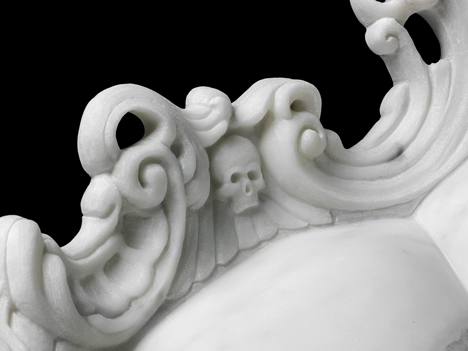
This marble version is one of four creations by different designers produced from a single 38.7-tonne block of white marble, excavated from a quarry owned by Robot City leader Gualtiero Vanelli.
The designs "give unexpected twists to the interchange between form, function, visual appearance, ergonomics, tradition and innovation", said Robot City in a statement.
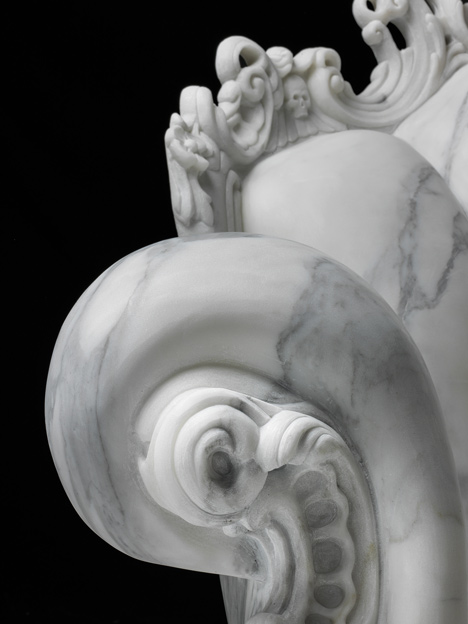
"Each of them enhanced the expressive and functional potential of this ancient, fascinating material, transforming it into advanced contemporary expressions according to their personal style and language."
The other three projects in the exhibition included shelves by Paolo Ulian, an undulating glass-topped table by Stefano Boeri, and a table with three rabbit-shaped chairs by Stefano Giovannoni.